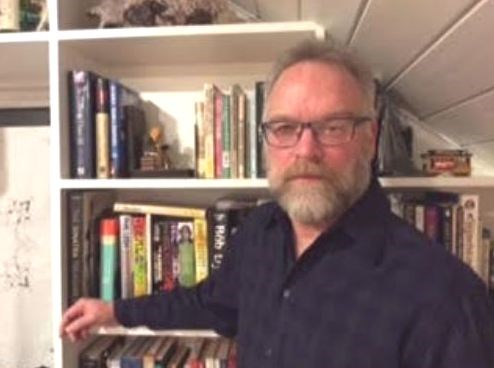They say municipal politics is the level of government that’s closest to the people.
And while the decisions of local councils do often impact daily lives the most, there’s another aspect that affects this closeness.
“In Orillia, you see your councillors everywhere, whether it’s Mariposa (Market) or the local pub, a restaurant, street event, they’re out there and they’re approachable,” Orillia resident Geoffrey Booth, a political science teacher at Georgian College’s Orillia campus,says.
“That, I think, counts for a lot and it also helps to augment the role that a councillor takes, because people trust them. They’re humans again," he said.
“And you can have a conversation with someone about ‘why is the waterfront being developed in this certain way and you need to have a meeting about this’,” he added.
Oro-Medonte Township Mayor Harry Hughes says that connection carries into election campaigns, too.
“There’s a myth out there why people vote to elect people to office, and very often it’s not weighted as heavily in terms of policies as some people think,” he said. “Very often their policy is a very small point. The reason they elect people is they want to know ‘if I’ve got a problem, is this a person that I am able to talk to and have confidence they’re actually going to be able to do something, and they will do something’.”
Hughes says the interaction of residents, councillors and municipal staff, however, works both ways.
“It isn’t just what is done, it’s how it’s done. How it’s carried out is often what gets municipal councillors into trouble,” he said. “Lack of communication can be a problem.
“A lot of the calls that come into a councillor have to do with how staff are carrying out that direction. Councillors’ role will be to ensure there is an explanation as to what’s happening. There will always be gaps.”
Gord Knox is a former planner, once the consultant of record for more than a dozen Simcoe County municipalities, before they had staff planners, and has appeared before the Ontario Municipal Board (OMB) more than 200 times.
The Innisfil resident retired 10 years ago, but has become involved in the short-term rental controversy that has plagued some of Orillia's neighbours.
Knox says local politics have changed, and so have the people making decisions.
“The politicians that I used to work with… I know they made mistakes, they did things that I might not have agreed with, but I believe very strongly they did it with the very best of intentions,” he said.
“These were good people…and did their very best to represent the people that had elected them and they did it selflessly. There were only a few of them that sort of got caught with their hand in the till. We’re well into 90 per cent that I believe were true and reasonable and honest people," he explained.
“Today, though, what I’m now being dragged back into — sort of 10 years after I left the field — I’m seeing a different grouping,” Knox said. “Whether some of them are in there for their ego now more than their service, whether the pay increase is now something that is very attractive to them… there’s a difference."
Booth points out that while many municipalities pre-date Canada’s 1867 confederation, they exist at the whim of the provinces.
Even Toronto, the largest Canadian city, takes its orders from the Ontario government. There’s no better example than Queen’s Park reducing the size of city council to 25 from 47 wards and changing their boundaries right in the middle of the 2018 Toronto election campaign.
Yet, it’s the local level of government which gets the most done for residents.
“People, I think, under-appreciate what municipalities actually accomplish. It just goes under the radar, so much of it,” Booth said. “A lot of it goes unnoticed, but we would certainly notice if it wasn’t going on.
"People tend to forget about how fundamentally important they are to our everyday lives — garbage, lights, power, sewage, snowplowing, water — these are all things, if they don’t happen, we’d be (screwed)," said Booth.
“Bottom line is probably the (councillors) advocate for their constituents and their constituents don’t contact them if there’s not a need to be addressed. Potholes, for example.”
